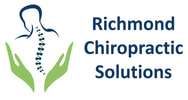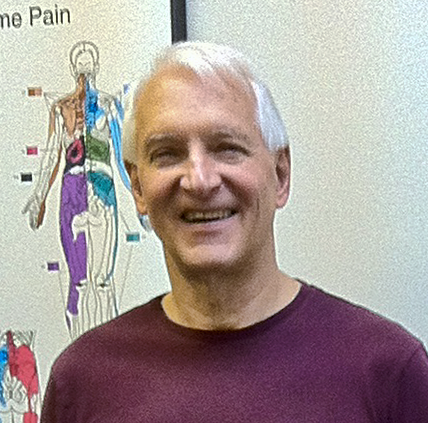Requirements for Vitamin D across the life span.Grant WB1, Boucher BJ.Author informationAbstractAdequate provision of vitamin D has been found, in ecological, cross-sectional, and observational studies, to be associated with reduction in the risk of many types of cancer, cardiovascular diseases (CVDs), autoimmune diseases, diabetes mellitus types 1 and 2, neurological disorders, several bacterial and viral
infections, and adverse pregnancy outcomes in addition to the classical bone disorders of rickets and osteomalacia. Furthermore, investigators have found adequate repletion and increased intakes of vitamin D to be associated with reduced all-cause mortality rates. These findings have been supported by the limited number of properly conducted randomized controlled trials (RCTs) that used more than 400 IU/day of vitamin D. This review presents an overview of the role of vitamin D for the promotion of health for the more important vitamin D-related diseases and conditions. Serum 25-hydroxyvitamin D concentrations of 30-60 ng/ml, corresponding to oral intake or skin production of 1,000-4,000 IU/day of vitamin D, appear necessary in adults for avoidance of hypovitaminosis D-related ill health. People of all ages are encouraged to obtain more vitamin D from judicious exposure to sunshine (for ultraviolet B [UVB] irradiation) or from regular vitamin D supplements because dietary sources do not provide sufficient vitamin D to prevent any health risks other than those of rickets and osteomalacia.
Ann N Y Acad Sci. 2016 Mar;1367(1):57-63. doi: 10.1111/nyas.13058.Vitamin D in dementia prevention.Annweiler C1,2,3.Author informationAbstractBeyond effects on bone health, vitamin D exerts effects on a variety of target organs, including the brain. The discussion herein presents the state of the art in research on the neurological role of vitamin D and clinical implications among older adults, including implications for dementia onset and progression. Some of the neurosteroid actions of vitamin D include regulation of calcium homeostasis, clearance of amyloid-β peptide, antioxidant and anti-inflammatory effects, and possible protection against the neurodegenerative mechanisms associated with Alzheimer's disease (AD). The correction of age-related hypovitaminosis D and cognitive decline has been reported by various cross-sectional and longitudinal studies reporting associations of lower vitamin D concentrations with brain changes and poorer cognition, specifically with respect to executive dysfunction. Epidemiological studies have consistently shown an association between inadequate dietary intake of vitamin D and cognitive disorders, including greater AD risk. Although there have not been any randomized placebo-controlled trials conducted to examine the effectiveness of vitamin D supplementation to prevent AD, several nonrandomized controlled studies have found that older adults experienced cognitive improvements after 1-15 months of vitamin D supplementation. Therefore, it appears crucial to maintain vitamin D concentrations at sufficiently high levels in order to slow, prevent, or improve neurocognitive decline.
© 2016 New York Academy of Sciences.
J Alzheimers Dis. 2016 May 11;53(2):419-44. doi: 10.3233/JAD-150943.Vitamin D, Cognition and Alzheimer's Disease: The Therapeutic Benefit is in the D-Tails.Landel V1, Annweiler C2,3, Millet P1,4, Morello M1,5,6, Féron F1.Author informationAbstractSince its discovery during the epidemic of rickets in the early 1920s, the physiological effects of vitamin D on calcium/phosphorus homeostasis have been thoroughly studied. Along with the understanding of its actions on skeletal diseases and advances in cellular and molecular biology, this misnamed vitamin has gained attention as a potential player in a growing number of physiological processes and a variety of diseases. During the last 25 years, vitamin D has emerged as a serious candidate in nervous system development and function and a therapeutic tool in a number of neurological pathologies. More recently, experimental and pre-clinical data suggest a link between vitamin D status and cognitive function. Human studies strongly support a correlation between low levels of circulating 25-hydroxyvitamin D (25(OH)D) and cognitive impairment or dementia in aging populations. In parallel, animal studies show that supplementation with vitamin D is protective against biological processes associated with Alzheimer's disease (AD) and enhances learning and memory performance in various animal models of aging and AD. These experimental observations support multiple mechanisms by which vitamin D can act against neurodegenerative processes. However, clinical interventional studies are disappointing and fail to associate increased 25(OH)D levels with improved cognitive outcomes. This review collects the current available data from both animal and human studies and discusses the considerations that future studies examining the effects of vitamin D status on neurocognitive function might consider.
Full text: https://www.ncbi.nlm.nih.gov/pmc/articles/PMC4969697/
Aging Dis. 2012 Aug;3(4):313-29. Epub 2012 Jun 6.
The problems of vitamin d insufficiency in older people.
Boucher BJ1.Author informationAbstractThis report reviews evidence on disorders related to inadequate vitamin D repletion in older people. Vitamin D is as essential for bone health in adults as in children, preventing osteomalacia and muscle weakness and protecting against falls and low-impact fractures. Vitamin D is provided by skin synthesis by UVB-irradiation from summer sunshine and to a small extent by absorption from food. However, these processes become less efficient with age. Loss of mobility or residential care restricts solar exposure. Reduced appetite and financial problems often add to these problems. Thus, hypovitaminosis D is common world-wide, but is more common and more severe in older people. Non-classical effects of vitamin D, depending on serum circulating 25-hydroxyvitamin D concentrations, are present in most non-bony tissues; disorders associated with hypovitaminosis D include increased risks of sepsis [bacterial, mycobacterial and viral], cardiovascular and metabolic disorders [e.g. hyperlipidemia, type 2 diabetes mellitus, acute vascular events, dementia, stroke and heart failure]. Many cancer risks are associated with vitamin D inadequacy, though causality is accepted only for colo-rectal cancer. Maintenance of repletion in healthy older people requires intakes of ≥800IU/day [20μg], as advised by the Institute of Medicine [IOM], but achieving such intakes usually requires supplementation. Excessive intakes are dangerous, especially in undiagnosed primary hyperparathyroidism or sarcoidosis, but the IOM finds doses <4000 IU/day are safe. Many experts suggest that ≥1000-2000 IU [25-50μg] of vitamin D daily is necessary for older people, especially when independence is lost, or hypovitaminosis D could add to the clinical problem[s]. Much higher doses than these are needed for treatment of established deficiency or insufficiency.
Increased telomerase activity and vitamin D supplementation in overweight African Americans H Zhu1 , D Guo1 , K Li2 , J Pedersen-White3 , IS Stallmann-Jorgensen1 , Y Huang1 , S Parikh1 , K Liu4 and Y Dong1 International Journal of Obesity (2011), 1 -- 5 & 2011 Macmillan Publishers Limited All rights reserved 0307-0565/11 www.nature.com/ijo
Ann N Y Acad Sci. 2016 Mar;1367(1):57-63. doi: 10.1111/nyas.13058.Vitamin D in dementia prevention.Annweiler C1,2,3.Author informationAbstractBeyond effects on bone health, vitamin D exerts effects on a variety of target organs, including the brain. The discussion herein presents the state of the art in research on the neurological role of vitamin D and clinical implications among older adults, including implications for dementia onset and progression. Some of the neurosteroid actions of vitamin D include regulation of calcium homeostasis, clearance of amyloid-β peptide, antioxidant and anti-inflammatory effects, and possible protection against the neurodegenerative mechanisms associated with Alzheimer's disease (AD). The correction of age-related hypovitaminosis D and cognitive decline has been reported by various cross-sectional and longitudinal studies reporting associations of lower vitamin D concentrations with brain changes and poorer cognition, specifically with respect to executive dysfunction. Epidemiological studies have consistently shown an association between inadequate dietary intake of vitamin D and cognitive disorders, including greater AD risk. Although there have not been any randomized placebo-controlled trials conducted to examine the effectiveness of vitamin D supplementation to prevent AD, several nonrandomized controlled studies have found that older adults experienced cognitive improvements after 1-15 months of vitamin D supplementation. Therefore, it appears crucial to maintain vitamin D concentrations at sufficiently high levels in order to slow, prevent, or improve neurocognitive decline.
© 2016 New York Academy of Sciences.
J Alzheimers Dis. 2016 May 11;53(2):419-44. doi: 10.3233/JAD-150943.Vitamin D, Cognition and Alzheimer's Disease: The Therapeutic Benefit is in the D-Tails.Landel V1, Annweiler C2,3, Millet P1,4, Morello M1,5,6, Féron F1.Author informationAbstractSince its discovery during the epidemic of rickets in the early 1920s, the physiological effects of vitamin D on calcium/phosphorus homeostasis have been thoroughly studied. Along with the understanding of its actions on skeletal diseases and advances in cellular and molecular biology, this misnamed vitamin has gained attention as a potential player in a growing number of physiological processes and a variety of diseases. During the last 25 years, vitamin D has emerged as a serious candidate in nervous system development and function and a therapeutic tool in a number of neurological pathologies. More recently, experimental and pre-clinical data suggest a link between vitamin D status and cognitive function. Human studies strongly support a correlation between low levels of circulating 25-hydroxyvitamin D (25(OH)D) and cognitive impairment or dementia in aging populations. In parallel, animal studies show that supplementation with vitamin D is protective against biological processes associated with Alzheimer's disease (AD) and enhances learning and memory performance in various animal models of aging and AD. These experimental observations support multiple mechanisms by which vitamin D can act against neurodegenerative processes. However, clinical interventional studies are disappointing and fail to associate increased 25(OH)D levels with improved cognitive outcomes. This review collects the current available data from both animal and human studies and discusses the considerations that future studies examining the effects of vitamin D status on neurocognitive function might consider.
Full text: https://www.ncbi.nlm.nih.gov/pmc/articles/PMC4969697/
Aging Dis. 2012 Aug;3(4):313-29. Epub 2012 Jun 6.
The problems of vitamin d insufficiency in older people.
Boucher BJ1.Author informationAbstractThis report reviews evidence on disorders related to inadequate vitamin D repletion in older people. Vitamin D is as essential for bone health in adults as in children, preventing osteomalacia and muscle weakness and protecting against falls and low-impact fractures. Vitamin D is provided by skin synthesis by UVB-irradiation from summer sunshine and to a small extent by absorption from food. However, these processes become less efficient with age. Loss of mobility or residential care restricts solar exposure. Reduced appetite and financial problems often add to these problems. Thus, hypovitaminosis D is common world-wide, but is more common and more severe in older people. Non-classical effects of vitamin D, depending on serum circulating 25-hydroxyvitamin D concentrations, are present in most non-bony tissues; disorders associated with hypovitaminosis D include increased risks of sepsis [bacterial, mycobacterial and viral], cardiovascular and metabolic disorders [e.g. hyperlipidemia, type 2 diabetes mellitus, acute vascular events, dementia, stroke and heart failure]. Many cancer risks are associated with vitamin D inadequacy, though causality is accepted only for colo-rectal cancer. Maintenance of repletion in healthy older people requires intakes of ≥800IU/day [20μg], as advised by the Institute of Medicine [IOM], but achieving such intakes usually requires supplementation. Excessive intakes are dangerous, especially in undiagnosed primary hyperparathyroidism or sarcoidosis, but the IOM finds doses <4000 IU/day are safe. Many experts suggest that ≥1000-2000 IU [25-50μg] of vitamin D daily is necessary for older people, especially when independence is lost, or hypovitaminosis D could add to the clinical problem[s]. Much higher doses than these are needed for treatment of established deficiency or insufficiency.
Increased telomerase activity and vitamin D supplementation in overweight African Americans H Zhu1 , D Guo1 , K Li2 , J Pedersen-White3 , IS Stallmann-Jorgensen1 , Y Huang1 , S Parikh1 , K Liu4 and Y Dong1 International Journal of Obesity (2011), 1 -- 5 & 2011 Macmillan Publishers Limited All rights reserved 0307-0565/11 www.nature.com/ijo


 RSS Feed
RSS Feed